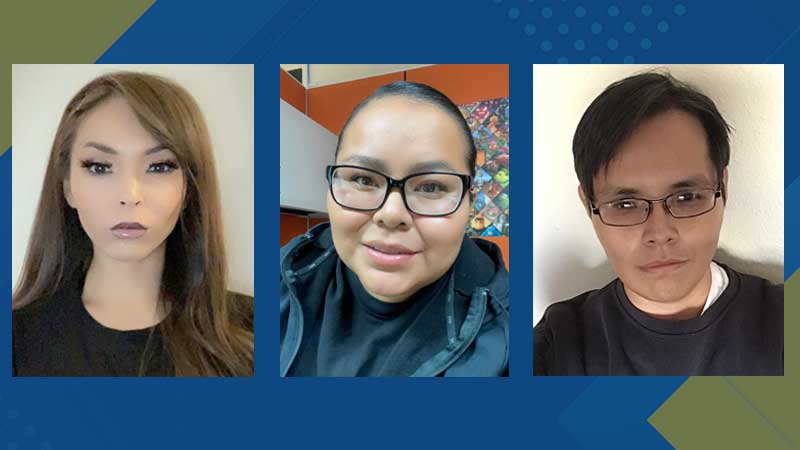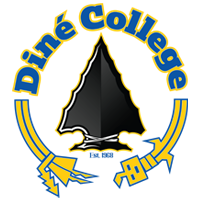
Diné College Students Publish Peer Reviewed Papers on Cancer
FOR IMMEDIATE RELEASE
October 19, 2021
TSAILE, Ariz. — Three Diné College undergraduate students publish peer reviewed papers on cancer. These studies were retrospective analysis of cancer clinical trials in the United States.
Diné College undergraduates Harrison Cayatineto, Gilberta Yazzie, and Chantanielle S. Clyde have been working in the Laboratory of Pharmacogenetics and Health Care Disparities under Diné College Professor of STEM & Biomedical Sciences Dr. Joseph de Soto.
Professor de Soto states, it is incumbent for Native Americans to develop their own scientific and medical research programs as for 500 years we have been alone and excluded. “I am proud of my students to sacrifice so much of their time and effort for the betterment of the Navajo Nation.”
The first paper by first author Harrison Cayatineto, “The Systemic Exclusion of Native Americans from Cancer Clinical Trials” was published in the Journal of Medical Research and Health Science.
The second paper by Gilberta Yazzie, “Colon Cancer: The Exclusion of Native Americans and Hispanics from Clinical Trials in the United States” was published in the Acta Journal of Medical Science.
The third paper by Chantanielle S. Clyde, “The Underrepresentation of Minorities and Non-Generalizability of Breast Cancer Clinical Trials?”, was published in the “Innovative Journal of Medical and Health Science.
“The therapeutic interventions to treat cancer are determined by the outcome of clinical trials which seek a high efficacy and low toxicity for a particular cancer treatment,” said Dr. de Soto. “The efficacy and toxicity are determined by the interplay of the medication with an individual’s biology which differs even within a particular ethnic group. These differences are magnified between ethnic groups hence, clinical trials that only include one ethnic group may not be generalizable. This means the treatment may not work as well in various ethnic groups and even be toxic or deadly.”
Dr. de Soto added that in the paper by Yazzie, only two Native Americans could be identified out of half a million clinical trial participants for colon cancer.
“These papers provide substantial evidence for the higher death rates from cancer in Native Americans though they are less likely to get cancer in part due to the non-generalizability of cancer clinical trials, which in turn is due to the exclusion of Native Americans and other ethnic minorities from clinical trials,” said Dr. de Soto.
Diné College is a four-year tribal college located on the Navajo reservation with six campuses and two microsites across Arizona, New Mexico, and Utah and primarily serves Navajo students. The school offers 20 bachelor degrees, 16 associate degrees, and 6 certificate programs. The school is accredited by the Higher Learning Commission. The College, established in 1968, is the first tribal college and was formerly named Navajo Community College.
